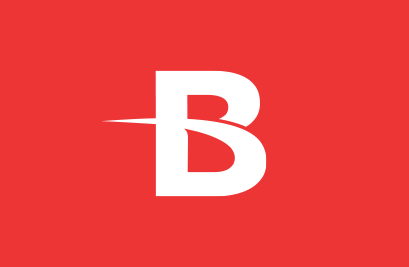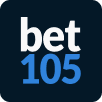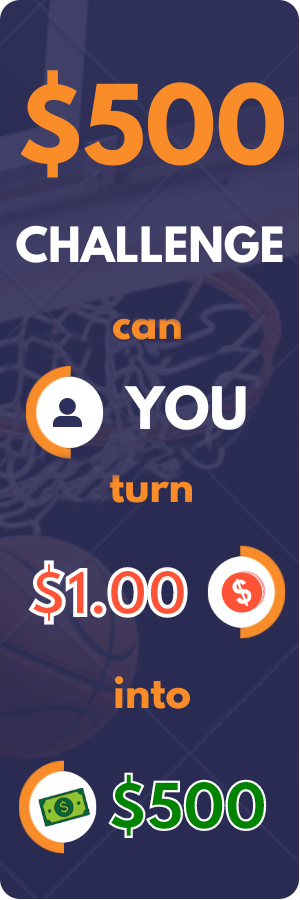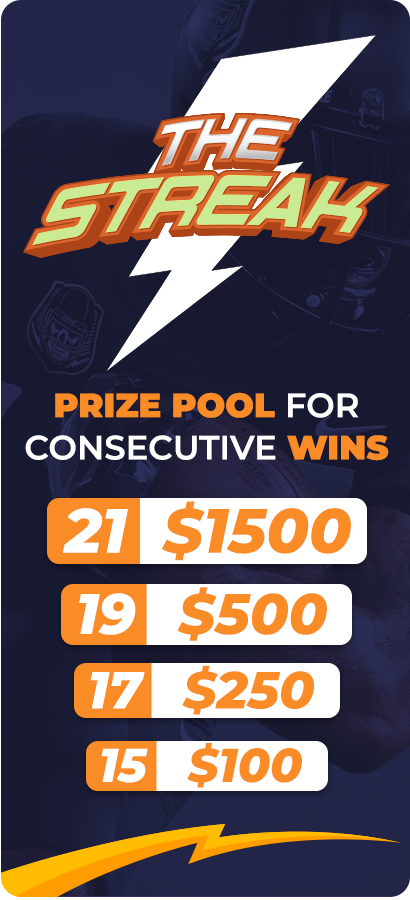How to Interpret Line Movement When Tracking NFL Odds Each Week
In the fast-paced world of NFL betting, line movement goes beyond simple numbers, it signals market pressure, public reaction, and behind-the-scenes insights. Observing the spread tighten before kickoff or odds shift midweek gives bettors a clearer view of the market. This article explains what line movement is, why it happens, and how to interpret it, providing clear, practical guidance for reading NFL odds like a pro, without confusing terminology.

$250 in Free Bets

200% Bonus - Reduced Juice

Reduced Juice Lines (-105)
What Is Line Movement?
Line movement refers to a change in betting odds or point spreads after they’ve been released by the sportsbook. These shifts happen when new information enters the market or when betting action becomes lopsided.
Let’s say a sportsbook opens the spread at 49ers -3.5. A few hours later, it moves to -5.5. That’s line movement. It means something triggered a shift in expectation—either a high volume of bets on San Francisco, or new info that boosts their outlook.
Tracking these moves week by week gives bettors an edge. It helps identify where momentum is building and where early value may have existed before the market adjusted.
Understanding What Moves NFL Lines
Several factors can cause odds or spreads to shift. Each one tells a slightly different story:
Injury reports: If a starting quarterback is ruled out midweek, expect the line to react quickly,
Weather conditions: Snow, wind, or rain can impact point totals or favour run-heavy teams,
Betting volume: If too much money flows to one side, sportsbooks may move the line to balance risk,
Public sentiment: A high-profile win can drive more bets on a team, even if the matchup doesn’t warrant it,
Sharp money: Professional bettors, or “sharps,” can move lines with well-timed, large bets that sportsbooks take seriously.
Understanding the cause behind a movement is just as important as noticing it happened.
How to Interpret Early and Late Line Moves
Timing matters. Not all line movement is created equal, and when it happens can help signal its origin.
Early movement
Early movement within 24 hours of the line opening is often attributed to sharp action. Professionals look for soft openers and bet before the market corrects. For example, if the Chiefs open as slight underdogs and flip to favorites quickly, it might mean sharps saw early value.
Late movement
Late movement, especially within 24 hours of kickoff, is more likely driven by public money or injury updates. If the spread balloons on Sunday morning, the broader market is reacting to something specific. Tracking line movement throughout the week allows bettors to follow both sharp and public behaviour, valuable context for building NFL betting predictions.
Understanding Reverse Line Movement and Its Signals
Reverse line movement is when the betting line moves in the opposite direction of the majority of bets. For example, if 75% of bets are on the Cowboys at -3, but the line shifts to -2, that’s reverse line movement. It typically suggests sharp money is coming in on the underdog, despite the public backing the favorite.
This kind of movement is a red flag for public perception being out of step with expert analysis. It’s a core principle for bettors who fade the public or use market indicators in their strategy. Spotting reverse line movement consistently requires real-time data and the ability to compare betting percentages with line shifts.
How to Track Line Movement Each Week
There are several reliable ways to monitor line movement across the NFL slate:
Use trusted sportsbooks with real-time updates. A legal platform like FanDuel Sportsbook shows accurate NFL odds alongside live movement,
Compare openers to current lines using odds tracking tools. Many betting sites offer historical snapshots,
Follow injury reports and media updates. Changes in player availability can be a key trigger,
Review betting splits. Some platforms share the percentage of bets and handle on each side.
By using these tools in combination, bettors can form a clearer picture of the market each week, and spot outliers that may signal value.
What Line Movement Can (and Can’t) Tell You
Line movement is a valuable data point, but it is not a guarantee. It shows what the market thinks, not what will happen on the field.
What it can tell you:
Where the sharp money is leaning,
How public perception is shaping the market,
When sportsbooks are adjusting to balance exposure,
Whether early odds offered real value.
What it can’t tell you:
Which team will cover the spread,
How a player will perform,
Whether a game script will follow expectations.
It’s best used in combination with match analysis, trends, and situational awareness, tools that form the foundation of solid NFL betting news.
Applying Line Movement to Your Strategy
To make line movement work in your favor, use it as part of a broader approach. Start by watching how spreads change from open to close each week. Pay attention to how often a late move aligns with actual outcomes.
Next, compare betting splits. If 80% of the bets are on Team A but the line shifts toward Team B, ask why. Then dig into team news, injury updates, or public narratives.
Lastly, treat line movement as a conversation between bettors, oddsmakers, and the game itself. It reflects evolving predictions, not final truths.
For those looking to sharpen their strategy, line movement offers insights into market psychology, sharp action, and volatility, three core pieces of weekly NFL betting insights.
Putting NFL Line Movement into Practice
Line movement is not just noise; it’s a valuable signal. By learning to read shifts in NFL odds, bettors gain a better understanding of market momentum, sharp activity, and game expectations.
It’s not about chasing every move. It’s about interpreting them in context and staying informed as the picture evolves throughout the week.
When combined with informed analysis and trusted platforms, line movement becomes a tool, not a trick. For those who track it consistently, it can become one of the clearest windows into the mindset behind the market.
Chat 
Rules
The goal of chat is to talk sports and sports betting! Help each other by sharing picks and having a good time!
Below will not be tolerated
You can chat about most things to a certain extent. Exception is absolutely NO talking about Religion or Politics.
- There will be NO talking about others or their families
- There will be NO name calling.
- There will be NO rambling on or repeating the same thing over and over.
- There will be NO racist or sexist comments.
- There will be NO posting of other websites.
Basically treat others the way you would like to be treated.
Break the rules

- 1st warning a 24 hour ban
- 2nd warning 7 day ban
- 3rd warning a lifetime ban




